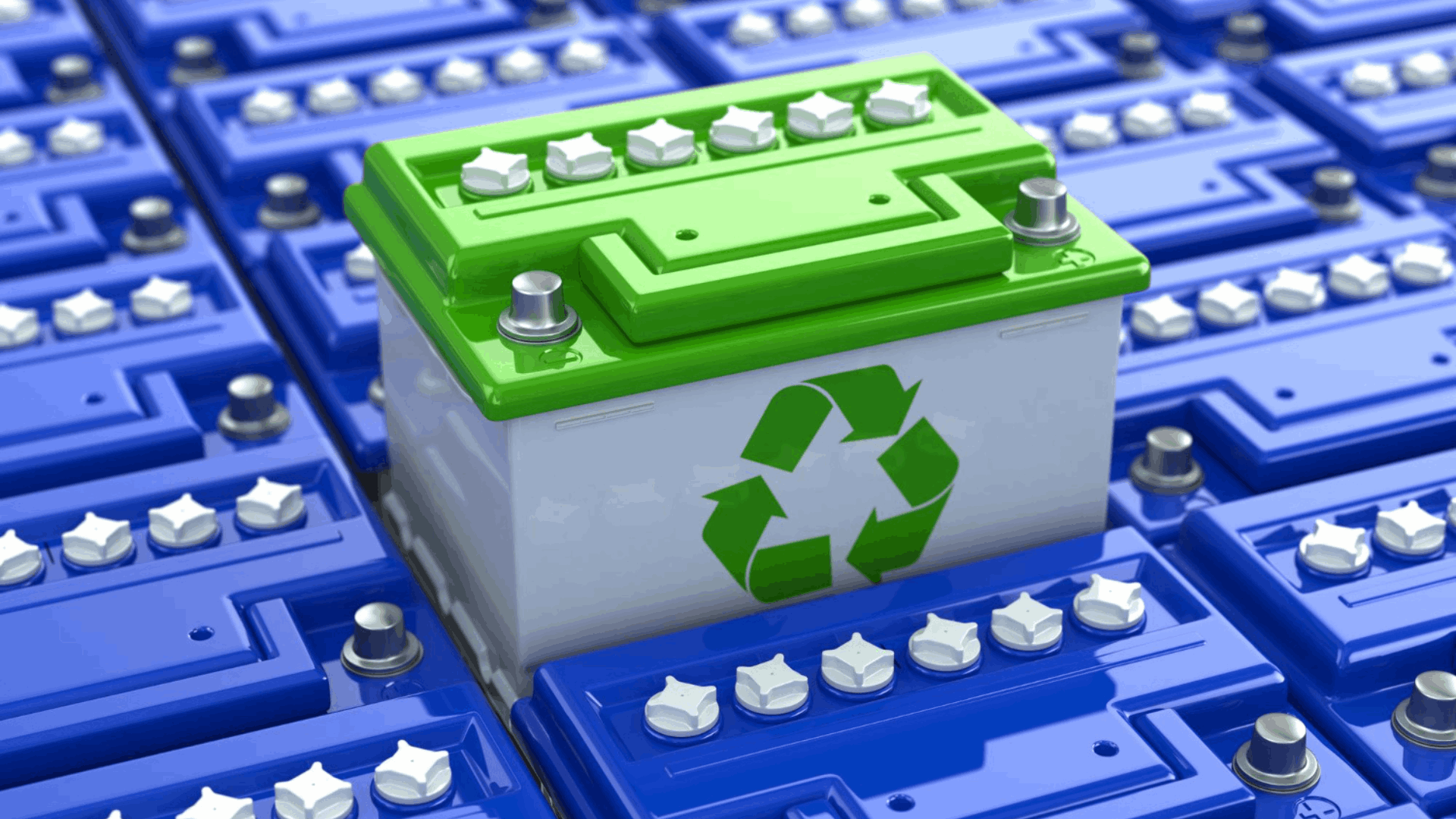![]()
The rapid development of electric vehicles or EVs and renewable energy systems has resulted in a surge in demand for lithium-ion batteries, making them a pivotal component of the green energy transition. However, this surged demand has also raised concerns about lithium-ion batteries’ environmental impact and sustainability, particularly regarding their disposal and recycling. To address these concerns and promote sustainable practices, the Indian government has introduced a range of policies, subsidies, and incentives to support the growth of lithium-ion battery recycling businesses in the country. This blog explores these initiatives and their impact on the industry’s development.
National Electric Mobility Mission Plan (NEMMP)
NEMMP, or the National Electric Mobility Mission Plan, introduced in 2013, is a crucial policy framework promoting EV adoption in India. Under NEMMP, the government has set ambitious targets for EV deployment and has recognised the importance of battery recycling for sustainable growth.
Some key components of NEMMP relevant to lithium-ion battery recycling include:
- Subsidies for EV Manufacturers: The government provides financial incentives to EV manufacturers, including those engaged in lithium-ion battery production, to encourage the development of environmentally friendly technologies. These subsidies indirectly benefit battery recycling businesses by promoting the adoption of lithium-ion batteries.
- Charging Infrastructure: NEMMP also emphasises establishing a robust charging infrastructure network for EVs, further stimulating demand for lithium-ion batteries and recycling activities.
Make in India and Atmanirbhar Bharat Abhiyan
The “Atmanirbhar Bharat Abhiyan” and “Make in India” initiatives boost domestic manufacturing and self-reliance across various industries, including battery production and recycling. These programs offer several incentives for companies engaged in recycling lithium-ion batteries:
- Preferential Market Access: Battery recycling businesses that manufacture products in India are given preferential access to government procurement, promoting the growth of domestic businesses.
- Financial Assistance: The government provides financial support, grants, and subsidies to encourage investments in battery recycling infrastructure, research, and development.
- Export Promotion: Lithium-ion battery recycling businesses participating in the “Make in India” initiative can benefit from export incentives and favourable policies, fostering international competitiveness.
Waste Management Rules, 2016
The Ministry of Environment, Forest & Climate Change (MoEF&CC) introduced the Solid Waste Management Rules, 2016, which have provisions for managing electronic waste, including lithium-ion batteries. These rules require producers, consumers, and recyclers of electronic waste, including batteries, to adhere to environmentally responsible practices. Besides, the government also introduced the Battery Management Rules 2001. Recently, the GoI also developed Battery Waste Management Rules, 2022.
Key aspects include:
- Extended Producer Responsibility (EPR): Battery manufacturers and scrap battery importers must establish a collection mechanism for used batteries, promoting recycling and safe disposal.
- Recycling Targets: The rules set specific recycling targets for various electronic waste components, encouraging lithium-ion battery recycling businesses to invest in recycling infrastructure.
- Compliance and Penalties: Stringent compliance measures and penalties for non-compliance ensure stakeholders actively participate in responsible battery disposal and recycling.
Faster Adoption & Manufacturing of Hybrid & Electric Vehicles (EVs) (FAME)
The Faster Adoption & Manufacturing of Hybrid & Electric Vehicles (FAME) scheme was introduced to incentivise the adoption of EVs and hybrid vehicles in India. Although it primarily focuses on EVs, its indirect impact on the lithium-ion battery recycling sector is significant:
- Subsidies for EVs: FAME offers subsidies and incentives for EV buyers, indirectly promoting the use of lithium-ion batteries and, in turn, their recycling.
- Charging Infrastructure: The scheme supports the development of charging infrastructure, further encouraging the growth of the lithium-ion battery market and recycling ecosystem.
Research and Development Grants
Through various departments and ministries, the government provides research and development grants to organisations and institutions involved in developing innovative recycling technologies and processes for lithium-ion batteries. These grants not only drive technological advancements but also facilitate the growth of specialised recycling businesses.
Pollution Control Boards
State Pollution Control Boards (SPCBs) are vital in regulating and promoting environmentally sustainable practices, including battery recycling. They monitor compliance with environmental norms and standards, issue licenses, and ensure recycling facilities adhere to safe and eco-friendly procedures. Collaboration with SPCBs is essential for lithium-ion battery recycling businesses to operate legally and sustainably.
Green Certification
The government has introduced green certification programs to recognise and promote businesses prioritising environmental sustainability. Lithium-ion battery recycling businesses can obtain green certifications by adhering to strict environmental standards and practices. These certifications can enhance a company’s reputation and attract environmentally conscious customers.
Export Promotion Schemes
The Government of India offers export promotion schemes, like the Export Promotion Capital Goods Scheme or EPCG and the Merchandise Exports from India Scheme or MEIS, to encourage lithium-ion battery recycling businesses to expand their presence in international markets. These schemes provide financial incentives and benefits to exporters, making it more lucrative for recycling companies to explore global opportunities.
Challenges and Opportunities
While government policies, subsidies, and incentives have significantly contributed to the growth of lithium-ion battery recycling businesses in India, several challenges persist:
Infrastructure Development
- Building recycling infrastructure requires substantial investment. The government needs to ensure adequate support is provided to attract private investments and foster the growth of recycling facilities.
Technological Advancements
- Continuous research and development are essential to improve recycling technologies and processes, making them more efficient and cost-effective.
Regulatory Compliance
- Stricter enforcement of waste management rules and regulations is necessary to ensure all stakeholders comply with responsible recycling practices.
Public Awareness
- Increasing public awareness about the importance of recycling lithium-ion batteries and the availability of recycling facilities is crucial for the success of the recycling industry.
Conclusion
The Indian government’s policies, subsidies, and incentives have led to a conducive environment for the development of lithium-ion battery recycling businesses. These initiatives not only boost environmental sustainability but also contribute to the development of a robust recycling ecosystem in the country. Continued investment in research and infrastructure, stricter regulatory enforcement, and enhanced public awareness are essential to accelerate this growth further. Lithium-ion battery recycling holds excellent promise as a sustainable and economically viable sector, aligning with India’s goals of clean energy and environmental responsibility.





